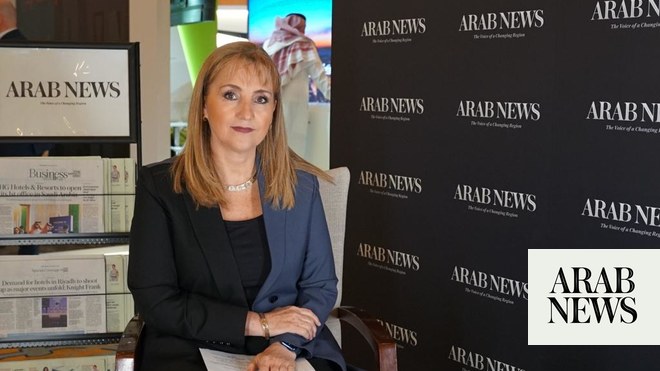
With phrases such as “second-tier workers”, “keystroke surveillance” and “presenteeism” rolling off their tongues, it is clear the three candidates vying to become Unite leader see white-collar Britain’s shift to working from home as a key battleground.
Before the election results are announced on Thursday, all three contenders for the job told the Guardian how they would ensure the union protects workers’ rights during one of the biggest changes to the world of work for half a century.
Unite’s head of manufacturing, Steve Turner, has been tipped as a frontrunner in the contest, but it is predicted to be a close result against rival Gerard Coyne, a former West Midlands regional organiser, and Sharon Graham, a Unite negotiator.
All three raised concerns about a permanent move to hybrid or home working across a number of sectors after the pandemic, while admitting that Unite – the UK’s second-largest trade union with more than a million members – was facing a big task in ensuring a fair deal for workers.
“When did we ever agree for our homes to become our workplaces? I think there’s a lot of issues that are going to come from home working,” Turner said. “Everything from musculoskeletal problems with working from settees, kitchen tables and, in many cases, beds to the additional expenditure on things like energy bills that comes with it.”
He added: “We’ve seen keystroke surveillance being introduced by some employers. Some have even tried to access webcams and watch people. If this is going to become the norm, then it needs to be done by agreement.”
Turner has received the backing of the most union branches, and has won the endorsement of the current general secretary, Len McCluskey. But McCluskey himself won by far the most nominations in the 2017 leadership contest, and only just beat rival Coyne.
Coyne, widely considered the more centrist of the three candidates, said alarm bells were already ringing that a “culture of presenteeism in a more male-dominated office environment” could harm women’s career progress – and said issues around childcare need to be central to future negotiations.
Graham was initially considered the outsider candidate, but said she was well known across workplaces through her record of negotiations, such as helping secure victory against fire and rehire tactics at British Airways last year.
“I don’t think that many people would call me the outsider at this point,” said Graham, who has previously spoken out about the online abuse she received when she refused to stand aside to allow a single leftwing unity candidate. “I faced abuse right from the beginning of the campaign. And when I wouldn’t stand down, it was abhorrent. You can understand why, women particularly, but anybody doesn’t put themselves into that position. But it didn’t deter me.”
She wants to provide a strong voice for women in the home-working negotiations, fearing they could be worst affected. “We want to make sure that people who are home working have equal access to promotion and opportunities because otherwise the people at home will be seen as second tier workers,” said Graham. “I don’t want women to be facing a double whammy where they’re paying the most for the Covid crisis, on top of the issues they already faced.”
She added: “But we’ve got to remember that lots of workers can’t work from home, so it’s important to remember different workers have different issues.”
Unite is the Labour party’s biggest donor (between January and March this year the union has given £131,000) and typically has close ties with its leadership. McCluskey has wielded significant power over the party over the past decade, helping push it towards the left.
But Coyne believes all that needs to change, saying he does not “think it’s healthy”. He added: “We’ve spent too much time obsessing about the internal politics of the party and not enough time focused on the day job. It’s about bringing this back to the mainstream, and making sure that we’re focused on jobs, pay and conditions first and foremost.”
Graham has taken a similar stance, asserting that “the obsession with Labour has got to stop”. But she added there needed to be a balance and she wouldn’t be afraid to speak up if the party wasn’t working in the union’s best interests. “If we’re saying that we’re not a backseat driver in the party, are we seriously suggesting we’re going to give our members’ money to Labour and not ask them what they’re going to do with it?”
Turner, a former London bus conductor, said he would “demand a seat at the table” with Labour and that he wanted the party to “be representing our values and our beliefs, and I want them to come out and meet our members”.
Coyne has also called for an independent inquiry into the union spending £98m of members’ money on a hotel and conference centre in Birmingham, initially projected to cost £7m. “Every single day it is members’ money we’re spending so, for me, this is really important to rebuild that relationship of trust and understanding.”
Turner has stood by the project, saying it’s “a fantastic asset” to the union and would put an end to it booking thousands of rooms in private accommodation.
All the candidates are determined to tackle a 10-year decline in Unite’s membership, with Graham arguing the union needs to show its power by winning negotiations. Turner, meanwhile, stressed the importance of attracting younger members while Coyne is keen to underline that becoming a growing, diverse union is the key to remaining politically relevant.
The election result could mark a critical juncture in the relationship between Labour and its biggest backer, but will also crucially determine who will be steering the course as the country heads into uncharted territory in the world of workers’ rights.












